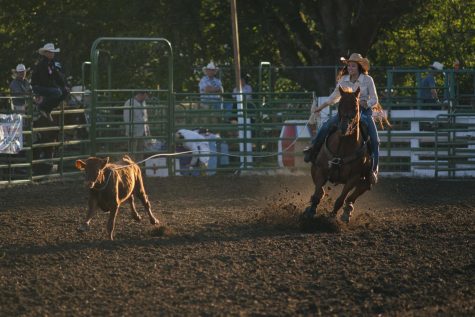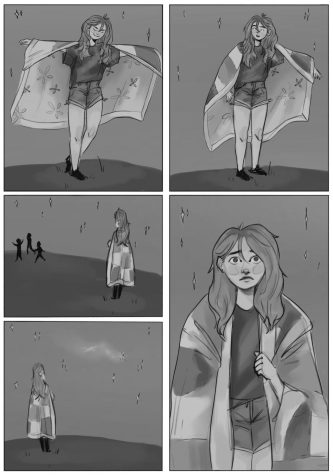Spalding returns with a thrilling re-creation of herself
March 29, 2016
It’s been nearly a decade since singer and bassist Esperanza Spalding presented her first studio album to the public. Since then she has composed unique blends of jazz, soul and Brazilian music, outsold other jazz artists considerably and even won the 2011 Grammy Award for Best New Artist.
Despite her rather uncommercial sound, Spalding has successfully established herself as one of the most prominent jazz artists in the industry.
All of these achievements make Spalding’s latest release, “Emily’s D+Evolution,” an important expression of her growth as a songwriter and musician.
A rather experimental project, the album takes a different musical approach compared to Spalding’s previous releases. Using distinct fusions of rock and jazz, she creates a highly unconventional sound, while making a statement that she has no plans on slowing her career down.
For the Portland native’s first album in four years, Spalding has teamed up with longtime David Bowie collaborator and producer, Tony Visconti. Largely a concept album, Spalding sings the music through an alter ego ‘Emily’ (her middle name), making the album more reminiscent of a 1970’s Bowie record.
With all but one of the tracks being original compositions, “Emily’s D+Evolution” presents Spalding at the peak of her songwriting capabilities. With poetic lyrics and rich, dynamic instrumentation, Spalding shows that she isn’t afraid to have some fun with her music.
Many of the songs are guitar based and devoid of wind instruments, making them difficult to distinguish as “jazz” compositions. But while some of the songs sound purely rock-oriented, the entirety of the album still fits within the category of jazz music.
Songs like “Judas” and “Earth to Heaven” are heavily based in rhythm and syncopation, with diverse influences from funk and soul.
The opener “Good Lava,” is very rock based, featuring distorted guitars and a standard composition.
Other songs have Spalding going more free-style and experimental. For instance, “Farewell Dolly” is a unique track that has Spalding singing along only to her bass guitar. Other tracks like “Funk the Fear’” have all the erratic, spontaneous fun of a Frank Zappa tune.
The album also never falls short of demonstrating Spalding’s talents. “Unconditional Love” manages to showcase Spalding’s dynamic vocal and falsetto range, while her virtuoso bass playing is demonstrated throughout the entire album.
On ‘Farewell Dolly’ she brings her bass performance to the forefront, playing it with a very harmonized style, giving the instrument a sound of its own.
The free-style format of “Emily’s D+Evolution” is further presented with its lyrical style and content. At times we see Spalding deal with serious topics like education and race. In “Good Lava” for example, she talks about venting creativrly and in “Noble Nodes” about in the atrocities committed by American colonists.
Other tracks see Spalding purely enjoying herself, with “Ebony and Ivy’” featuring segments of spoken poetry. She even comically sings about wanting ice cream on the closing track “I Want It Now.”
For an artist who hit the peak of her popularity in the last few years, Spalding has proven that she refuses to let fame go to her head. In fact, “Emily’s D+Evolution” proves that Spalding is not afraid to stray from the mainstream, be true to her creative self and simply have fun with making music.
After building a career built on jazz and R&B, Spalding seems to have finally created a musical sound that is entirely her own.























































































































